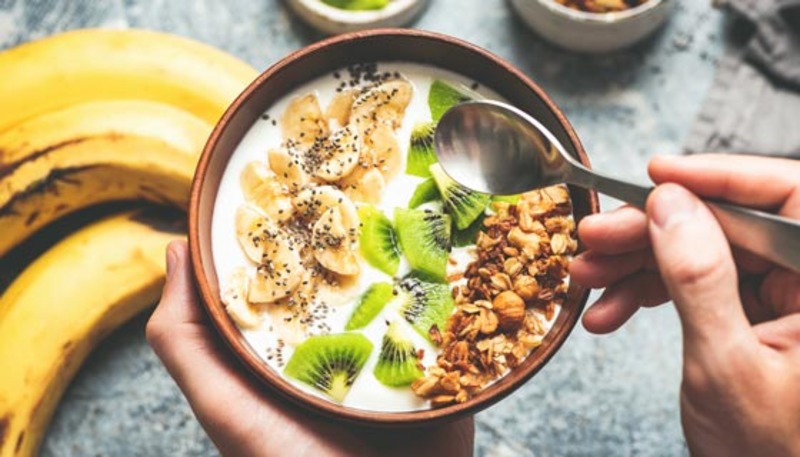Gluten is a type of protein that you can find in wheat, barley, and rye. This protein gives bread and many other baked stuff their stretchy feel and chewy texture. For a lot of people, gluten does not cause any problems so they include it normally in what they eat every day. Nonetheless, certain people encounter negative responses to gluten, which has fueled the trend of adopting a gluten-free diet. The purpose of the article is to debunk prevalent misconceptions about living without gluten and offer precise details enabling you to make knowledgeable food choices.
Myth: A Gluten-Free Diet Is Healthier for Everyone
Common thinking often suggests that a gluten-free diet is naturally better for all people. This wrong idea can make people remove gluten from their eating habits even if there's no medical need. Truthfully, most individuals have no problem with consuming gluten. Mainly, people who have celiac disease or gluten intolerance find eating without gluten beneficial for their health. If you do not suffer from these conditions, there isn't much strong proof that suggests staying away from gluten will boost your general well-being or result in superior nutrition results.

This fable may lead to needless food limits that can affect social dining experiences. Persons who avoid gluten for no reason could lose access to foods rich in nutrients like whole grains, which are vital parts of a balanced diet. Moreover, this tendency might cause misunderstanding about what makes up a good diet and makes people give more importance to products labeled as gluten-free than their general nutritional value.
- Consideration: Some gluten-free products are marketed as healthy but may lack essential nutrients.
- Awareness: A balanced diet includes various food groups, regardless of gluten content.
Fact: Celiac Disease Requires a Strict Gluten-Free Diet
Celiac disease is a kind of autoimmune disorder in which eating gluten causes harm to the small intestine. Persons with a diagnosis of celiac disease must follow a strict diet without gluten to avoid severe health problems such as malnutrition and damage to their intestines. It's not about personal choice but an essential medical need. People who get diagnosed with celiac disease have to stay away from gluten in every form to keep their health good and avoid symptoms like bloating, diarrhea, and tiredness.
To identify celiac disease, we usually need particular tests that can also involve examining genes to evaluate risk elements. Tiny quantities of gluten can activate signs and persistent harm, thus being cautious in your selection of food is very important. People who have this condition should always remember the possibility of cross-contamination, which happens when foods free from gluten come into contact with those containing it.
- Testing: Blood tests and intestinal biopsies are standard for diagnosis.
- Caution: Cross-contamination can happen in shared kitchens or dining areas.
Myth: Gluten Intolerance Is Not a Real Condition
A usual misbelief is that gluten intolerance isn't a real health problem. Some people might claim it's an overblown issue or simply trendy, but studies indicate that non-celiac sensitivity to gluten does happen. People having this situation show signs like what celiac disease patients have; issues with digestion and tiredness without the immune system reacting inappropriately. While it remains a field of ongoing study, acknowledging gluten intolerance as a real condition is crucial for those who suffer from it.
People who suffer from intolerance to gluten generally feel better when they exclude gluten from their food. However, the precise reasons why people are sensitive to this protein are not completely known and the symptoms can differ greatly between different individuals. It's crucial for those suspecting a gluten intolerance issue in themselves to seek advice from health experts so that proper assessment can be done and other potential diseases can be discarded.
- Understanding: Symptoms can be diverse and vary significantly among individuals.
- Advice: Keeping a food diary may help identify triggers related to gluten.
Fact: Gluten-free foods Can Be Processed and Unhealthy
It is often wrongly believed that all foods without gluten are healthier choices. A lot of products with no gluten, like snacks, pastries, and processed items, have high sugar and fat content to make up for the absence of gluten. This implies that just selecting options free from gluten does not necessarily ensure a healthy diet. Reading labels and knowing the nutritional content of gluten-free products is very important. We should concentrate on whole foods such as fruits, vegetables, lean proteins, and whole grains that are naturally without gluten.

Customers might also notice that items without gluten can be higher in price compared to those with gluten. People need to understand that just because a product is free from gluten, doesn't necessarily make it nutritious. There are some products without gluten but have processed ingredients that do not contribute much to health benefits.
- Cost: Gluten-free foods are typically more expensive than regular items.
- Labeling: Always check for added sugars and unhealthy fats in gluten-free products.
Myth: Gluten-Free Means a Lack of Nutrients
Several individuals have the opinion that adopting a diet without gluten could result in insufficient nutrients. This worry comes from understanding that grains containing gluten, such as wheat, provide important nutrients like fiber, iron, and B vitamins. Nevertheless, if properly organized, a diet free of gluten can still include these necessary elements through different sources. Quinoa, brown rice, and buckwheat are very good grains without gluten that provide similar nutritional advantages. A balanced strategy that concentrates on a range of whole foods can assist in keeping nutritional sufficiency.
Those following a gluten-free diet need to carefully watch their fiber intake because many grains without gluten can have less fiber compared to whole wheat products. It may be needed to consume enriched foods and supplements to get enough quantities of certain vitamins and minerals. If people plan their meals thoughtfully, they can ensure that they get all the required nutrients even in the absence of gluten.
- Fiber: Including diverse sources of fiber is essential for digestive health.
- Supplements: Some individuals may need supplements to meet nutritional requirements.
Fact: Consulting a Healthcare Professional Is Important
It is very important to seek the advice of a healthcare professional before you make big changes in your diet, particularly if thinking about living gluten-free. A doctor or food expert can guide you on checking for celiac disease or intolerance to gluten and assist in making a personal eating plan that suits your needs. You get assurance from an expert's counsel that any change in what you eat will not result in unexpected results like a lack of nutrients or uneven meal habits. Proper education and support can lead to healthier decisions regarding gluten consumption.
Healthcare experts can also aid in decoding food labels and finding hidden gluten content in different items. Continual learning about gluten and its impact helps people make educated decisions for their diet. Also, support circles and materials are there to offer additional help for those dealing with the intricacies of living without gluten.
- Guidance: Professionals can provide tailored advice and meal planning support.
- Resources: Support groups can offer community and additional information for those affected.
Conclusion
Knowing the truth about gluten and diets without it is important for making health choices based on good information. Eating no gluten is needed for people who have celiac disease or can't tolerate gluten, but not eating it isn't always a healthier choice for everybody else. Knowing which are false beliefs about gluten can assist individuals to tell what's true from what's not, leading to a well-rounded way of eating. In the end, concentrating on complete foods full of nutrients, along with expert advice can result in better health results for individuals who need to control their intake of gluten.







